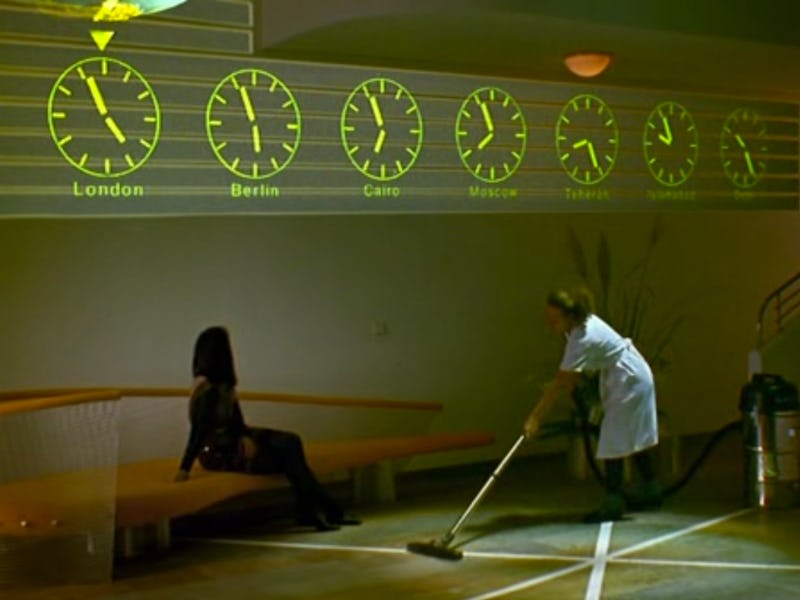Why Don’t More Soundtracks Look to the Future?
'Until the End of the World' did something Hollywood should copy.

In 1991, German film director Wim Wenders released his magnum opus Until the End of the World and solidified his status as an all-time lunatic of the cinema. If you’ve ever seen the film, a three hour futuristic road trip sci-fi nightmare shot on almost every continent, you’ve still never seen the entire film because the five-hour cut isn’t coming out until later this year.
While I need an extra five thousands words to even begin diving into what I think about the film itself, its larger and more important legacy is actually the soundtrack. Wenders’ film was set ten years in the future (1999) and so he asked all of the artists contributing original music to write songs in a style they imagined they’d be performing a decade in the future. It’s a genius high-concept prompt, but more importantly it was a prompt executed by some of the biggest names in music who took it very seriously.
To a varying degree, it can be argued that this outside of the box thinking led to major changes in the style of all the artists that participated. It’s a shockingly collaborative moment of transformation for bands like Talking Heads, Nick Cave and The Bad Seeds, R.E.M, Elvis Costello, Depeche Mode, Peter Gabriel, T-Bone Burnett, and even Patti Smith. Of all the contributions, the band that took the most from the experience is probably U2, who donated the title track “Until The End Of The World.” These forward thinking tech-undertones influenced their recording of Achtung Baby and laid the groundwork for their future-focused masterpiece Pop a half-decade later.
So my question, is why don’t more soundtracks look to the future?
In the case of Until The End Of The World, the soundtrack made more money than the film itself, and shockingly more than half of the songs written for it appear on the greatest hits albums for the bands that wrote them; on all levels a successful experiment. So why aren’t other people trying out ideas like this? Soundtracks have a rare opportunity to bring together big names, so why not push them outside their comfort zone to do something meaningful, or at least different?
To this end, I don’t just mean inviting musicians to cover songs in a new style, although that’s at least a step in the right direction. One of my favorite soundtracks of all time is for the little known video game Stubbs The Zombie, which invited modern alternative artists to do fairly traditional covers of 50’s standards. I just want to know why we aren’t doing more music born of cool prompts?
My favorite examples of other successes in this movement all unfortunately come from the maligned genre of rap-rock. While the Spawn soundtrack in 1997 is often credited with helping launch the genre — by blending nu-metal, hip-hop, and alt-rockers — this is nothing compared to what Judgment Night did four years earlier.
The 1993 Emilio Estevez/Cuba Gooding Jr. ghetto thriller is the epitome of a “just fine” movie. But the soundtrack is madness. Immortal Records saw the success of the Run D.M.C./Aerosmith team-up on “Walk This Way”, and asked why more rappers and bands weren’t paired up to make mega-cross-genre hits. The album both painfully answers the question but also paves the way for the entire genre to pour out, and stands as not only a commercial success but now a cultural curio you can delight your friends with.
Spawn came off as daring by matching up artists like KoRn and The Dust Brothers, or Filter with The Crystal Method. But that’s nothing like Judgment Night throwing Sir Mix-A-Lot in a booth with Mudhoney. Look at that track listing. How badly do you need this album now, some twenty-two years later? It’s insane and it birthed a genre. It’s a literal flashpoint.
But this gets back to what modern soundtracks have become. Some of the biggest cultural moments with crossover potential have come from Hunger Games/Twilight soundtracks in the last few years, but no one ever dared these artists to write something imagined for the cinematic world they’re dabbling in, and it’s a missed opportunity not just for the film, but for what the soundtrack could give back to the bands involved.